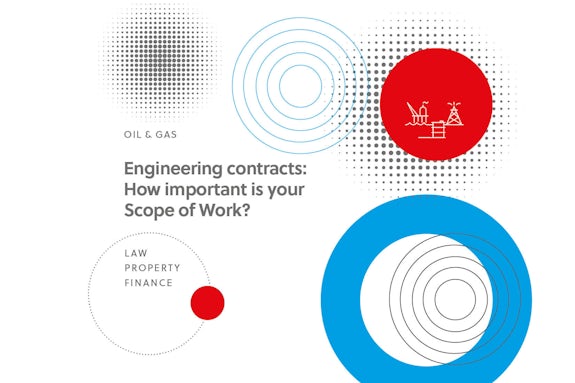
May 22, 2025

As stated in my previous blog, available to read here, all parts of your contract, be it supplying products or services offshore, manufacturing components, or providing professional services, are important and the contract as a whole needs to be properly evaluated and scrutinized. And, as mentioned in my blog, that needs to be a team effort.
In a word, “yes”.
The scope of work needs to be detailed and specific enough to set the parameters of what is in and what is out of scope.
We have all heard the phrase “scope creep”. We have all heard that phrase because it happens all too often.
A well-defined scope of work (which needs to be worked to, rather than beautifully drafted and then placed on a shelf, never to be seen again), dictates what you are contractually obliged to do and at least as importantly, what you are not obliged to do.
It is that second part that requires laser-type focus. Whenever you are asked to perform work that you think is out of scope, you should flag it. If your scope of work is clear, it is an easy argument to make. If there is ambiguity in the scope of work, you can run into problems when trying to implement the variation process.
Nobody wants to perform work and not get paid for it. The scope of work underpins the work that you are contractually obliged to perform and therefore to get paid for. If the scope of work is clear and accurately reflects what is to be performed and by when, all you need to do is to follow it! Of course, it is not always that simple, but that should always be the starting point.
And, remember if you are asked to go off scope, get agreement on the fact it is out of scope and that you will get paid separately for that out-of-scope work – normally via the variation procedure in your contract.
If you would like further information on the topic discussed in this blog, please contact Calum Crighton.
Email: ccrighton@gilsongray.co.uk Phone: 01224 011687 / 07841 920101.
You can also view Calum’s profile by clicking here.

Calum is a Partner, heading up our Oil & Gas/Energy team. He is recognised as a leader in his field and well-respected for ability to advise all companies from oil & gas majors right through to SMEs, with a particular expertise in decommissioning.